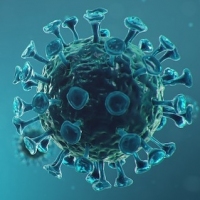Because many hot and cold water systems would not have been running during the current COVID-19 lockdown, the chances of Legionella bacteria forming in water systems would have increased, particularly given the warm weather we have recently been experiencing.
There is real concern within our industry of outbreaks of Legionnaires Disease if no action is taken upon reopening ANY building.
Simply reopening a building that has stood idle, without addressing the safety of its water system, is unacceptable and is likely to be in breach of the law.
Buildings that have remained empty with static water systems, or those that have been subject to flushing that does not represent normal usage, are likely to require the water system to be recommissioned.
Those that have remained in normal use or where flushing has approximated normal usage (evidenced by water meter readings) may still require additional control measures due to additional risk factors.
The requirements for recommissioning a building water system will vary and the level of work and investment should be appropriate for the risk.
Duty Holders should refer to your current Legionella Risk Assessment and/or seek professional advice from your Authorising Engineer for Water for best practice on recommissioning the building.
Factors that should be considered are...
- Has the system remained in normal use or flushed to simulate use, is there evidence to support this and have water samples been taken to validate this.
- Is there any previous history of positive Legionella samples from the water system
- Is the system defined in HSG274 info box 2.2 as a Low-Risk System
For very simple buildings flushing alone may be sufficient but for most buildings some form of disinfection is likely to be needed.
In the worst cases, repeat disinfection and extensive cleansing flushing may be required to clear contamination.
If buildings must reopen before the water system can be safely recommissioned then consideration should be given to supplementary measures to control risk for example point of use filters can be a useful short term measure to reduce the risk in individual areas.
Written schemes of control for Legionella should always have included start-up and shut-down procedures for water systems.
COVID-19 has highlighted that many schemes do not include this or that the process is unworkable or unsuitable. Written schemes of control should be reviewed to ensure any future emergency shutdown of a building includes safe decommissioning and recommissioning of the water systems.
CLIRA have continued and will continue to provide our service during the current COVID-19 pandemic, we have over 35 years of experience within the water hygiene industry and our Director Arthur Norbury is a member of the prestigious Institute of Healthcare Engineering and Estate Management. Please do not hesitate to get in touch with any questions or advice on how to safely and effectively recommission your building as the HSE will simply not accept the COVID-19 lockdown as an excuse for non-compliance and breaches to Legionella control and management.
Call our office on 01743 247942 or email us at enquiries@clira.co.uk
Back